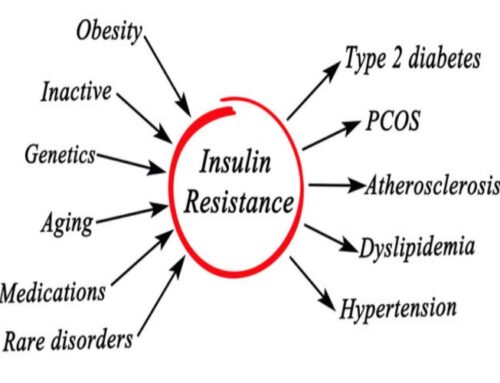I never thought too much about fats or oils other than to try and use them sparingly, per the former food pyramid and outdated information about fat from the 90’s, until a few years ago. I was in the midst of learning about food and inflammation and learned about the importance of dietary fats, well, healthy anti-inflammatory fats, that is. The health effects of oils vary drastically depending on what fatty acids they contain, what plants they are extracted from, and how they are processed. Both omega-6 and omega-3 fatty acids are essential fatty acids, meaning that you need some of them in your diet because your body can’t produce them on its own. We now know that fat intake from healthy sources of oil such as olives, grass fed butter, coconuts, and avocados are actually not only good for us, but vital for health and longevity.
We want to limit or avoid the following oils: soybean oil, canola oil, vegetable oil, palm oil, corn oil, and seed oils (sunflower, safflower, grape, and cottonseed). These oils are high in Omega 6 fatty acids, are super processed ,and are more prone to lipid peroxidation which leads to inflammation, poor insulin sensitivity, and tissue damage. It is estimated 10% of calories consumed by Americans are from soy. Soybean oil is especially common in processed foods and has the highest level of consumption of any edible oil in the US. In 2020, Americans consumed about 10.43 million metric tons of soybean oil, compared to about 1.5 million metric tons of palm oil (2nd most consumed).
In the past century or so, the ratio of omega-6 to omega-3 fats in our diet has shifted dramatically from a 1:1 ratio to as high as 20:1. Studies show that too much omega-6, relative to omega-3, contributes to chronic inflammation which is an underlying factor in many diseases such as heart disease, cancer, diabetes, and arthritis. Since many of our health concerns are caused from the foods we consume, including high consumption of inflammatory oils, we should try to limit their intake. There are a number of reactions poor food choices set off in our bodies and one such impact, is the change in our fatty acid composition due to in some part, to the increased consumption of vegetable oils, which are high in omega-6 polyunsaturated fats.
Polyunsaturated fats are susceptible to oxidation; this means they react with oxygen and start deteriorating.Studies show that this fatty acid gets incorporated into our cell membranes and body fat stores, and since it is prone to oxidation, damages our cells and leads to inflammation and may increase our risk for cancer and other diseases. Takeaway: the fat we eat isn’t only stored as body fat or burned for energy, it’s also incorporated into our cell membranes. Therefore, if you have a lot of omega-6 polyunsaturated fats in your body from over consumption, your cell membranes will be more sensitive to oxidation and damage.
Another thing to look out for is trans-fat which is also highly inflammatory. Vegetable oils may contain trans fats, which form when the oils are hydrogenated. The process of hydrogenation is used to harden oils, making them solid at room temperature (think Crisco and margarine). To ensure you aren’t consuming hydrogenated oil or trans-fat, check the food label for the words “hydrogenated oil” in the ingredient list. Certain peanut butters contain hydrogenated oil, so it is best to opt for the natural option or brands without this type of oil. Margarine also tends to contain inflammatory oils. To best protect your health, avoid products that contain hydrogenated oils.
Simply put, over consumption of processed vegetable oil causes cellular damage and inflammation. Unfortunately, the most commonly consumed oils in the US are various types of vegetable oils, usually in the form of processed foods that have vegetable oils added because they are cheap and readily available. The best way to limit intake of these oils is to avoid processed foods and not cook with them. The good news is that there lots of healthy beneficial fats, oils, and butter on the market.
Extra Virgin Olive Oil is a great choice for salad dressings or use as a marinade. It doesn’t have a very high heat-point and therefor isn’t heat stable, so you want to limit how much you cook with it. A couple of oils on the market that have high heat points and are great for cooking are almond and avocado oil. While these oils tend to be a little more expensive than canola, it is worth the investment as they are not inflammatory and have numerous health benefits. Further, a little oil goes a long way, so you don’t need to use much.
One particularly beneficial oil is MCT oil. MCT stands for medium chain triglyceride and is derived from coconuts. This type of oil is a super fuel for our cells because it boosts fat burning and increases mental clarity. It can also help you lose weight because it gets absorbed directly from the stomach into the liver and doesn’t get stored as fat but rather gets metabolized, burned quickly, and turned into immediate energy. For many people, MCT oil becomes that little nudge to help you drop those last 10 to 15 stubborn pounds that just won’t go away. It can also lower blood sugar levels and is an excellent fuel source for our brain. As such, starting your day off with a little MCT oil can greatly enhance focus and brain function.
MCT oil is flavorless and odorless. You can use it for salad dressing, to cook vegetables or just about anywhere else you would use oil. You can even add it to your coffee or tea in the morning to start the day off with a brain booster. When first introducing MCT oil into your diet, you will want to start slow, as it has been known to aid in digestion a little too well and has been known to cause “disaster pants” when people start using too much too soon. A great way to begin using MCT oil is to put 1 teaspoon in your coffee or other beverage and build up slowly adding another teaspoon every few days until you reach one to two tablespoons daily, depending on your size and weight goals. I also like to use it as a base for salad dressing as it has a much thinner consistency than olive oil. My current favorite go-to salad dressing is to mix one tablespoon of MCT oil with one tablespoon of coconut aminos.
While it is has gotten some bad press in the past, coconut oil is another excellent source for oil. If you don’t like the slightly sweet flavor of coconut opt for the refined coconut oil instead of unrefined. Coconut oil is also great for our skin and acts as an excellent moisturizer. When choosing butter, opt for the grass-fed options such as the Kerigold brand or clarified butter known as ghee. My favorite brand of ghee is 4th and heart.
In summary, swap your low-quality, cheap vegetable and canola oils for olive, coconut, avocado, almond and/or MCT oil. Your heart, brain and waistline will thank you. I like to switch it up and use different oils for different things, so I can get the various benefits that each of the healthy non-inflammatory oils offer. As always, if you have questions or want additional information, please reach out to me.






